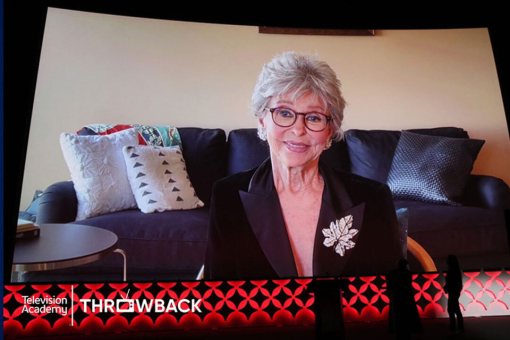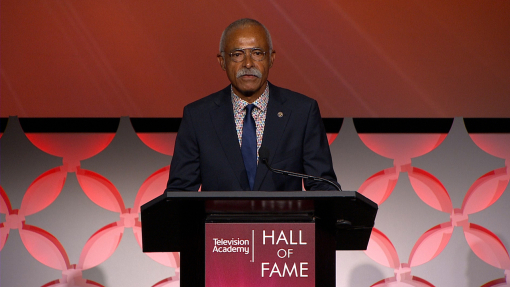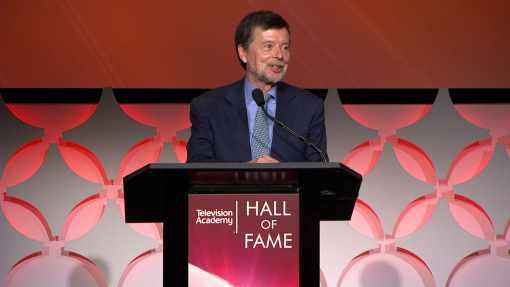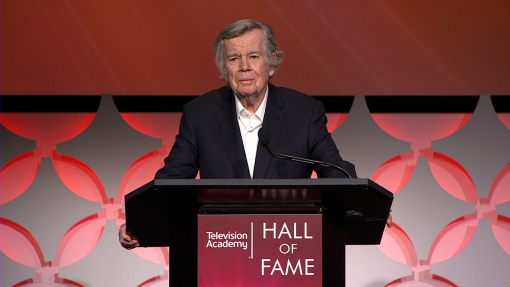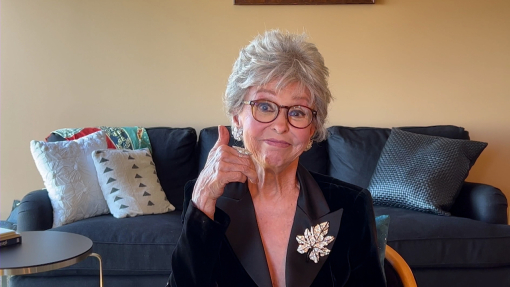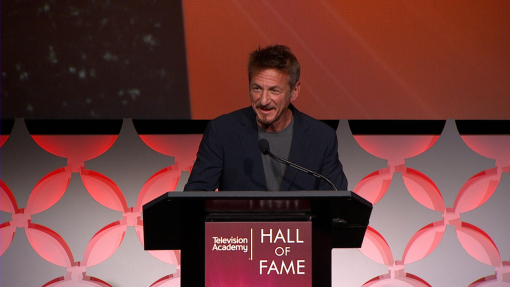I knew before David ever walked in the door that he would be a good fit for L.A. Law, which we were just developing at the time. I'd read the screenplay he'd written when he was a lawyer in Boston, titled From the Hip. It was wonderful. What I loved about it was the irreverence. It was a courtroom drama. His characters spoke the language that we were all familiar with, as opposed to speaking the language that was arch and stilted, which most non-lawyer writers try to emulate when they're writing courtroom dramas. And it was funny! I thought, "This has got all the elements that we want." I read 10 pages and I called his agent and said, "Get this guy out here. I want to hire him." And that was it.
David has the rare talent that characterizes the best writers: He can create a wonderful story. From the beginning, he had an original way of thinking about things. He was never afraid to go off and just figure things out for himself. In the writers' room, if we were stuck for something, he would say, "I'll figure it out. Don't worry." And he would go off and do it. When you're in my position, to find a writer who's such a selfstarter, that's a gift.
David has never been good writing for someone else. He's a real New Englander — emotionally, he's close to the vest, a bit of a loner. I think his way of running the show is to have people go off and write the episodes, and then he rewrites them. On Doogie Howser M.D. [about a teenaged doctor], he wrote the majority of the pilot. He brought things to it that I never could have. He has kind of a boyish vibe that was perfectly appropriate for it.
If I were to hear now that there was a new David E. Kelley project in the works, I'd probably expect something with a legal bent. The legal genre is so well suited to great television, and David is brilliant at it. He'll frame an issue, take both sides of it and argue it like a lawyer does. Being a lawyer is an advantage when you're in television — lawyers know how to work; they know how to attack a problem. In television, the easiest part is the writing. The hardest part is the thinking. David is a wonderful thinker. He just thinks in an interesting, thorough, creative way, and it's why he'll sit down and write a draft of something very quickly — because he's thought it through in a very rigorous way. He uses a yellow legal pad; that's a lawyer thing.
One of the things I love most about David is that he has a kind of bravery as a writer. He's not afraid to write about anything. When he takes something on, whether it's a philosophy, or thematic, or something silly, he completely embraces it. On L.A. Law, he always had a fascination for music in the show. We did an episode where he brought a singing group into the courtroom. When he told me the idea, I thought, "Aw, come on, that's silly." But it worked, because he committed to the concept. It was a doo-wop group.
Personally, he's one of the finest guys I've ever known. He's honest, he's loyal and he's genuinely kind. He's your friend. If you need something from David, he's there. I'm thrilled that David has been chosen for the Hall of Fame. You could not fill out that roster without his name on it.
Television Academy Hall of Fame member Steven Bochco, co-creator of such series as Hill Street Blues, L.A. Law and NYPD Blue, hired Boston lawyer David E. Kelley for his first television job in 1986, as the writer of one episode of L.A. Law. Kelley became story editor and ultimately, executive producer of the show. Bochco and Kelley co-created Doogie Howser, M.D., after which Kelley went on to create numerous series, among them Picket Fences, Chicago Hope, Boston Public, Boston Legal, Harry's Law and currently, The Crazy Ones on CBS. In 1999, he won the Primetime Emmy Award for outstanding series for both drama (The Practice) and comedy (Ally McBeal). He has won nine Primetime Emmy Awards.
This tribute originally appeared in the Television Academy Hall of Fame program celebrating David E. Kelley's induction in 2014.

